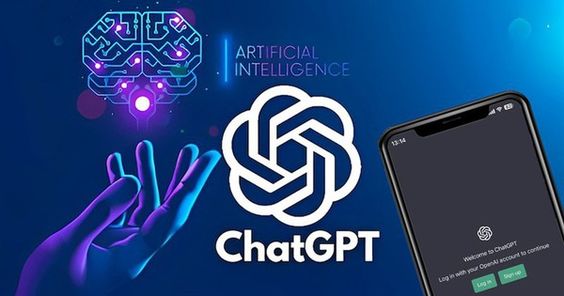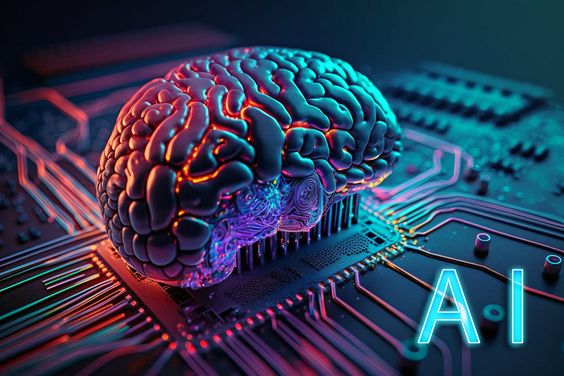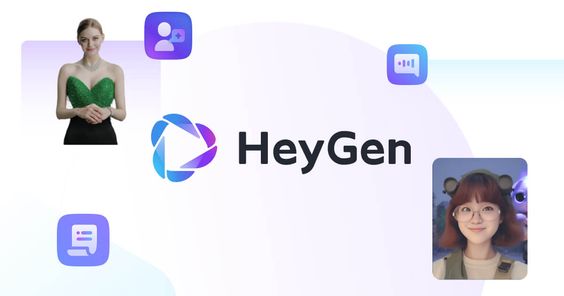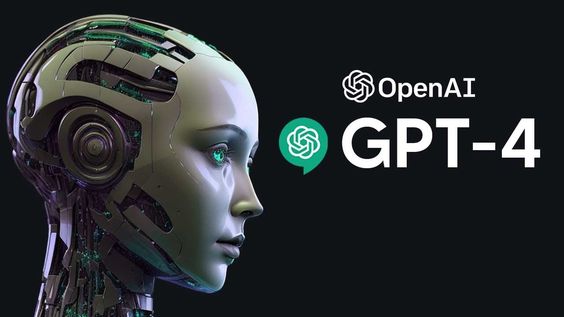ChatGPT: Revolutionizing Conversations with Advanced AI Communication
In an era dominated by digital communication, ChatGPT emerges as a frontrunner in revolutionizing how we interact with artificial intelligence. This article aims to delve into the multifaceted capabilities of ChatGPT, shedding light on its diverse applications, advancements, and the transformative impact it has on human-machine interaction.

Introduction to ChatGPT:
In the vast landscape of natural language processing, ChatGPT emerges as a groundbreaking tool that revolutionizes the way we interact with AI. Powered by OpenAI's cutting-edge technology, ChatGPT showcases an unparalleled ability to generate human-like text responses, blurring the lines between man and machine. With its advanced language model, ChatGPT is capable of understanding and processing complex language patterns, enabling it to engage in meaningful and coherent conversations with users. Its significance lies in its capacity to mimic human speech, offering a seamless and immersive chat experience that feels remarkably authentic. As a pioneer in the field of AI-driven communication, ChatGPT sets a new standard for intelligent virtual assistants, chatbots, and language processing systems, ushering in a new era of human-computer interaction.
Conversational Sophistication:
ChatGPT's conversational sophistication truly sets it apart from other AI models, as it excels in understanding context, generating coherent responses, and engaging in nuanced dialogue. By delving into the intricacies of its capabilities, we can see just how advanced and adaptable this AI truly is.
One of the most impressive aspects of ChatGPT is its ability to grasp the subtleties of a conversation and respond in a way that feels natural and coherent. Whether discussing complex topics or engaging in light-hearted banter, ChatGPT can adapt its responses to match the tone and flow of the conversation, creating an immersive and engaging experience for users.
Furthermore, ChatGPT's capacity to understand context adds an extra layer of depth to its conversational abilities. By recognizing patterns in dialogue and drawing upon a vast repository of knowledge, ChatGPT can provide insightful and relevant responses that contribute to the overall coherence of the conversation.
Applications Across Domains:
ChatGPT's versatility and utility make it a valuable tool across a wide range of domains. In customer service, ChatGPT can be used to provide instant responses to customer inquiries, improving response times and overall customer satisfaction. Virtual assistance platforms can utilize ChatGPT to provide personalized recommendations and assistance to users, enhancing their overall experience.
In content creation, ChatGPT can be used to generate ideas, draft articles, and even provide feedback on writing style, making it a valuable tool for writers and creators looking to streamline their workflow. In education, ChatGPT can assist students with homework help, provide explanations of complex concepts, and even act as a virtual tutor, offering personalized learning experiences to students of all ages.
The applications of ChatGPT are truly limitless, with its ability to adapt to various domains and tasks making it a valuable asset for businesses, educators, content creators, and beyond. Its versatility and utility make it a powerful tool that can enhance productivity, streamline processes, and improve overall user experiences in a wide range of industries.
Enhancements and Iterations:
Over the course of its development, ChatGPT has undergone several iterations and enhancements that have significantly improved its language understanding, response coherence, and context retention capabilities.
In its early iterations, ChatGPT had basic language processing capabilities and struggled with understanding complex sentences and nuances in language. However, through continuous improvements in its underlying algorithms and training data, ChatGPT has evolved to better comprehend and interpret human language. This has allowed it to generate more accurate and contextually relevant responses to user inputs.
Furthermore, enhancements in response coherence have been a key focus for the developers of ChatGPT. By fine-tuning its generation algorithms and incorporating feedback mechanisms, ChatGPT is now able to generate more coherent and natural-sounding responses that flow seamlessly in conversation. This has made interactions with ChatGPT more engaging and satisfying for users.
Another area of improvement in ChatGPT has been its ability to retain context throughout a conversation. By implementing memory mechanisms and context tracking algorithms, ChatGPT is now able to maintain a more consistent understanding of the ongoing dialogue and reference previous interactions to provide more personalized and relevant responses.

Ethical Considerations:
Ethical considerations are paramount when considering the deployment of ChatGPT, as with any AI technology. One of the primary concerns is the potential for bias to be present in the data used to train the model, which can result in discriminatory outcomes in the responses generated by the chatbot. It is essential to continuously monitor and address any biases that may arise, through regular audits and updates to the training data.
Misinformation is another significant ethical consideration with ChatGPT. The chatbot has the potential to spread false information if not properly monitored and guided. It is crucial to implement safeguards to verify the accuracy of information provided by the chatbot and to ensure that it does not contribute to the spread of misinformation.
Privacy is a key ethical concern when deploying AI technologies like ChatGPT. Users must be informed about how their data is being collected, stored, and used by the chatbot. It is essential to prioritize user privacy and security by implementing robust data protection measures, such as encryption and data anonymization.
Finally, the responsible use of AI technologies is essential when deploying ChatGPT. It is crucial to consider the potential impact of the chatbot on society and to ensure that it is used in a way that aligns with ethical principles and values. This includes being transparent about the capabilities and limitations of the chatbot, as well as setting boundaries for its use to prevent harm and misuse.
Human-Machine Collaboration:
Human-Machine collaboration, particularly with the use of advanced natural language processing models like ChatGPT, holds immense potential for revolutionizing the way humans work and interact with technology. By leveraging the unique strengths of both humans and AI, this collaboration can greatly enhance productivity, problem-solving capabilities, and creativity in various fields.
ChatGPT's ability to understand and generate human-like text opens up endless possibilities for collaboration in tasks that require complex language processing, such as content creation, customer service, and data analysis. By working alongside ChatGPT, humans can offload repetitive or time-consuming tasks, freeing up their time to focus on higher-level thinking and decision-making.
Moreover, ChatGPT can serve as a valuable resource for brainstorming and idea generation, providing new perspectives and insights that may not have been considered otherwise. Its vast knowledge base and ability to generate coherent responses make it a powerful tool for sparking creativity and innovation in various industries.
Future Prospects:
ChatGPT and conversational AI have already made significant strides in transforming the way we interact with technology. As we look towards the future, the potential advancements in this field are truly exciting.
One of the key areas where we can expect to see major developments is in the ability of ChatGPT and conversational AI to understand and respond to human emotions. This could lead to more empathetic and personalized interactions, making these technologies even more useful in a variety of applications, from customer service to mental health support.
Additionally, we can anticipate improvements in the ability of ChatGPT to carry out more complex tasks, such as helping with decision-making processes or providing in-depth explanations on a wide range of topics. This could have a transformative impact on industries such as education, healthcare, and finance, where the ability to provide accurate and timely information is crucial.
Of course, with these advancements also come challenges. One of the main concerns is around the ethical implications of using AI in conversational settings. Issues such as privacy, bias, and manipulation will need to be carefully addressed to ensure that these technologies are used responsibly and ethically.
Despite these challenges, the transformative impacts of ChatGPT and conversational AI on society and industry are expected to be significant. From improving customer service experiences to revolutionizing the way we interact with technology, the future prospects for these technologies are truly promising. By continuing to innovate and address the challenges that come with these advancements, we can create a future where ChatGPT and conversational AI play a central role in enhancing our lives.
User Perspectives:
User perspectives play a crucial role in evaluating the effectiveness and usability of any tool or technology, including ChatGPT. By incorporating real-world experiences and testimonials from individuals who have used ChatGPT, we gain valuable insights into the impact it has on daily interactions and communication.
One user, Sarah, shared her experience using ChatGPT to help her with writing assignments for school. She mentioned how the tool was able to generate creative and well-written content, saving her time and helping her achieve better grades. Sarah highlighted the ease of use of ChatGPT and how it seamlessly integrated into her workflow, making her writing process more efficient and enjoyable.
Another user, John, spoke about how ChatGPT has revolutionized the way he communicates with his colleagues at work. He mentioned how the tool has helped him draft professional emails and reports quickly and effectively, allowing him to focus on other important tasks. John emphasized the positive impact ChatGPT has had on his productivity and the quality of his work, stating that it has become an indispensable tool in his daily routine.
These testimonials not only showcase the effectiveness of ChatGPT in various real-world scenarios but also highlight its versatility and adaptability to different users' needs. By capturing these user perspectives, we can gain a deeper understanding of the tool's capabilities and the tangible benefits it brings to individuals in their everyday lives.
ChatGPT stands at the forefront of conversational AI, offering a glimpse into a future where seamless human-machine interaction is not only possible but also enriching and empowering. By unlocking the potential of ChatGPT and embracing responsible AI practices, we pave the way for a more connected, intelligent, and inclusive digital landscape.





